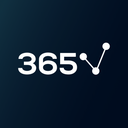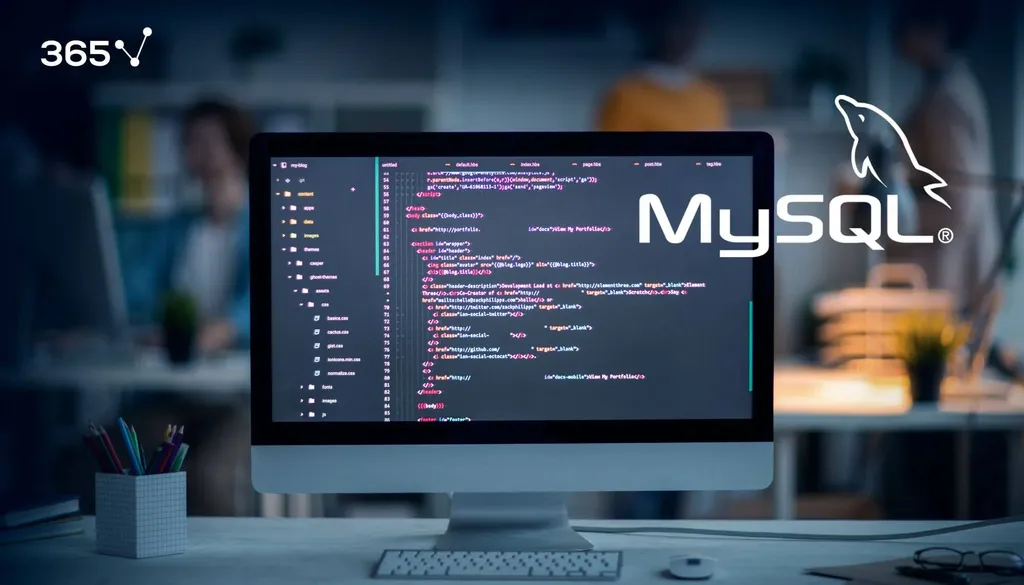
Why is SQL developer a career worth exploring?
When going through some of the most popular job boards online, you can easily see that SQL continues to be among the highly sought-after skills for development, business intelligence, and data science job offerings.
In fact, starting out as an SQL developer can open the door to a successful long-term career in data science or BI. That’s why the topic of this article is ‘can you become an SQL developer’ and how to do it.
First, we’ll describe an SQL developer’s role in a company.
Then, we’ll focus on the technical and soft skills you need to be successful on the job. We’ll also discuss the education and working experience hiring companies are looking for.
To top things off, we’ll provide information regarding and the expected salary for SQL developers in different parts of the world.
We've also developed a variety of flashcard decks to assist you in your SQL learning journey. These cover the basics of databases and this essential query language. Check them out here: Foundations of Databases and SQL Flashcards and SQL Data Types, Relationships, Keys, and Constraints Flashcards.
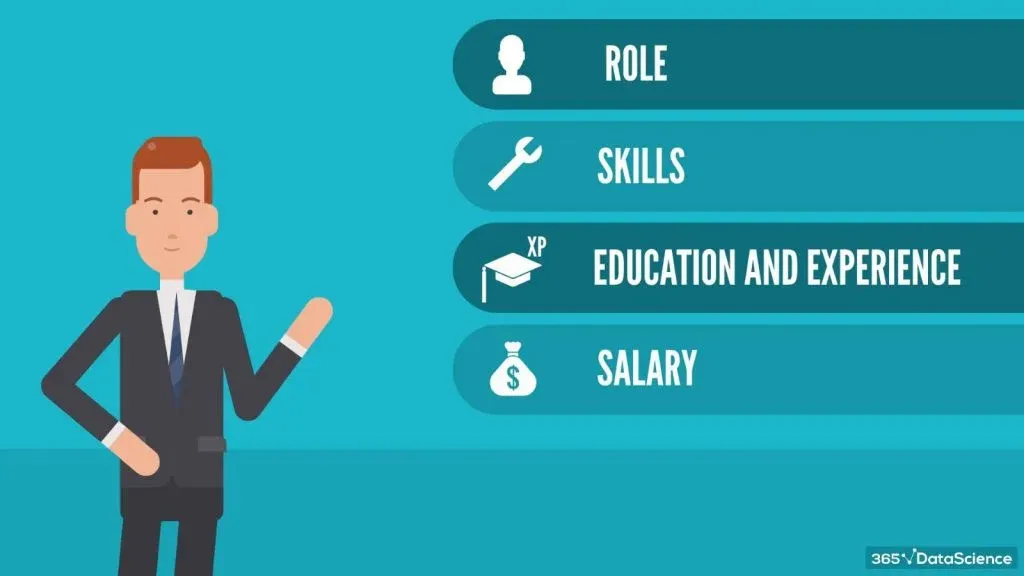
So, what does an SQL developer actually do?
In short, we can say that this position requires you to build, maintain, and manipulate database systems. And, very often, you’ll have to use the data stored in the databases you created to develop ad-hoc and recurring reports. To this end, you will need to write and test SQL code, as well as create stored procedures, functions, and views.
But to understand well how to organize their data, an SQL developer must communicate well with technical and non-technical Subject Matter Experts from the business.
For example, a sales SME would be best qualified to communicate the granularity of sales data to be collected, how the respective database should be maintained from a business perspective; and how frequently the sales team would like to receive a given type of report they have requested.
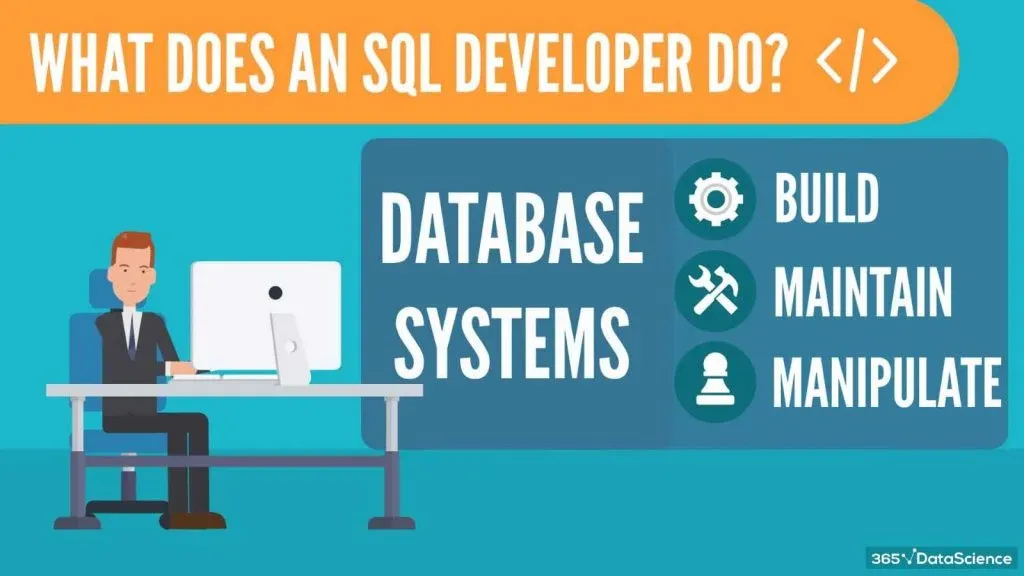
Nowadays, an SQL developer doesn’t work in isolation.
Companies work with different ERP systems and the databases you maintain will sometimes have to be migrated. This can happen when the company introduces a new ERP software or changes its existing one. So, in such a situation, you’ll need to export data from multiple types of source DBs you operate at the moment; and then clean the data using an extraction, transformation, loading tool (ETL).
In our day and age, more and more companies migrate their data to the cloud and an SQL developer will certainly have to play an active role if this happens in their firm.

What technical skills does an SQL developer need on the job?
Of course, you need to be proficient in SQL. (We’re sure you didn’t see this one coming, right?)
And some of the most popular database management systems that allow you to work with versions of the Structured Query Language are MySQL, SQL Server, and PostgreSQL:
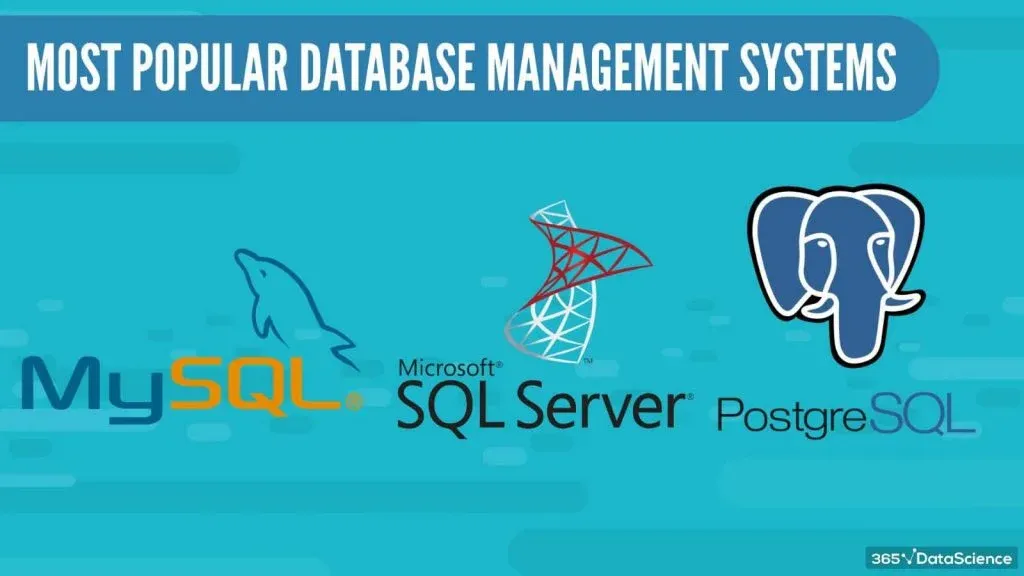
MySQL is the world’s most popular open-source relational database management system, while Microsoft’s SQL Server is typically preferred by corporations.
Quite importantly, Microsoft’s SQL Server comes with three essential types of services – SSIS, SSRS, and SSAS. These are some of the most frequently mentioned prerequisites in job ads.
SSIS stands for SQL server integration services
It’s a framework we use for data migration and data integration; what is helpful is that SSIS contains an ETL tool that can be used for automated database maintenance.
SSRS
SQL Server reporting services help you prepare and deliver reporting, and
SSAS
SQL Server analysis services enable analytical processing and data extraction.
These SQL server components were some of the most frequently mentioned and requested technical skills among all SQL developer job postings we analysed. We can say with certainty that employers see this as the basis needed for this role.
Some other in-demand technical skills we encountered are:
- Ability to work with and integrate databases with business intelligence data visualization software, such as Tableau and Power BI;
- Proficiency in Microsoft Excel along with an ability to work well with Pivot tables for ad-hoc reporting.
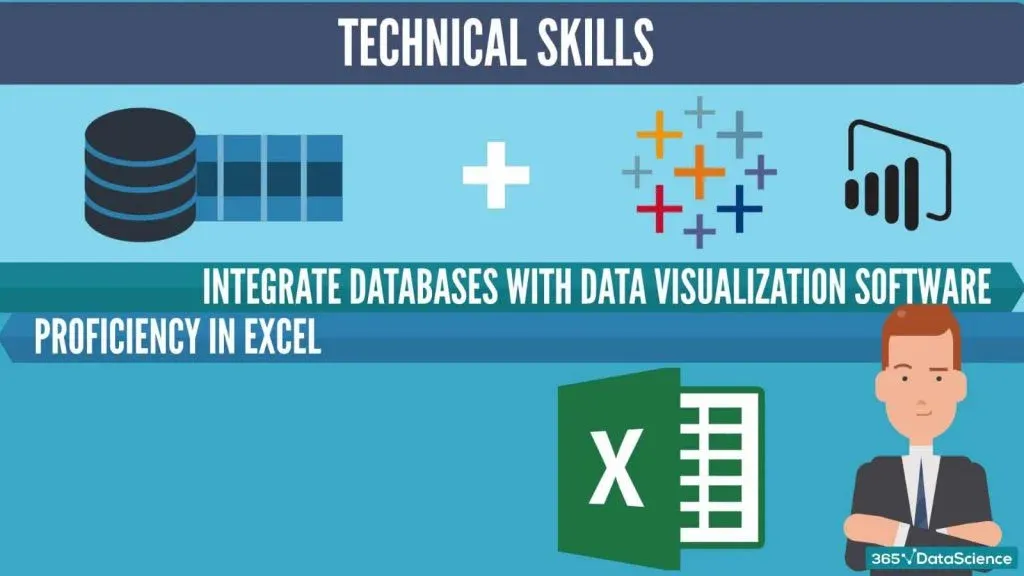
In addition, very often employers list some of the ‘’desired’’ (but not compulsory) skills to have.
For SQL developer positions, such ‘nice to have’ abilities are:
- Experience with NoSQL databases;
- Java, Python, or C programming;
- And an understanding of big data analytics.
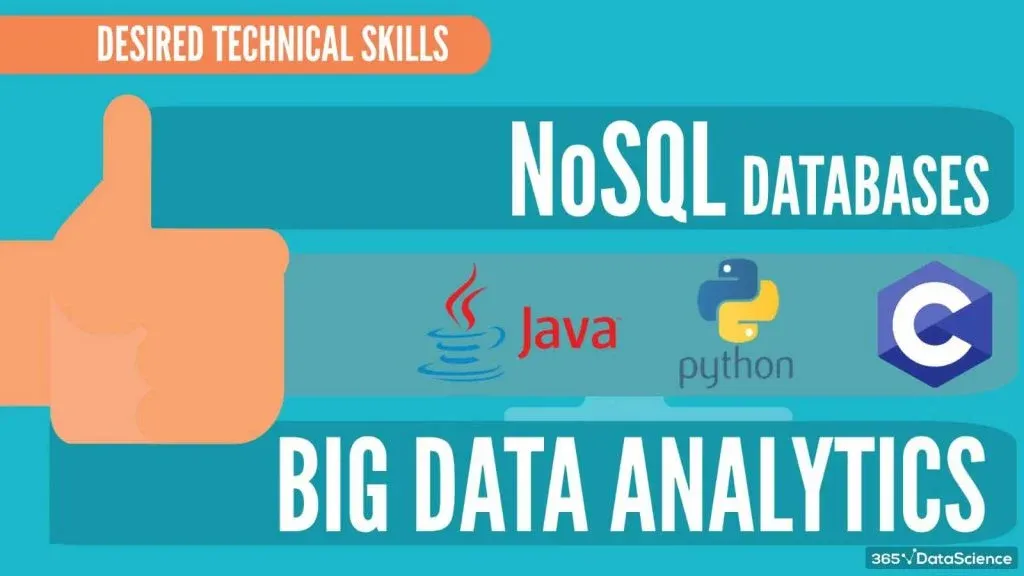
What about soft skills? Are they important?
Well, employers look for SQL developers who are also good communicators. SQL developers work hand in hand with SMEs with various backgrounds within a company. Therefore, they need to be able to understand the other person’s point of view and reason together to design an optimal solution. Almost all job listings we researched mentioned ‘good interpersonal skills’ and ‘ability to communicate with people’.

And that leads us to our final point:
What formal qualifications do you need to apply as an SQL developer and how much is the starting salary you could expect in different parts of the world?
This is a suitable position for junior professionals. However, in most cases, you need some initial experience. Almost all job ads we analysed required 1 or 2 (and sometimes more) years of experience with SQL and relational database tools in a professional environment.
The other most frequently seen requirement was a Bachelor’s degree; preferably if it came from a related field, be it Computer Science, Engineering, Mathematics, Statistics, or Data Analysis.
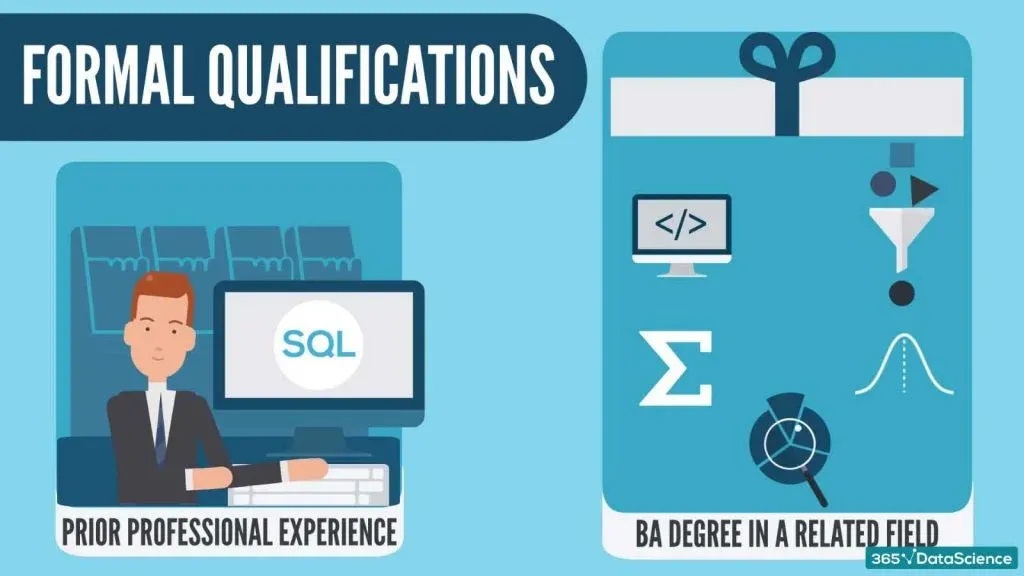
Now, to determine how much SQL developers around the world make on average, we relied on Glassdoor data and found out the following:
On average, SQL developers in the United States receive \$81,600 per year; whereas in Germany an SQL developer takes home \$55,368.
If you work on this position in Canada, you will expect an amount in the range of \$50,500; which is slightly higher than \$47,600 in the UK.
And the average SQL developer in India makes around \$6,000 per year, according to Glassdoor.
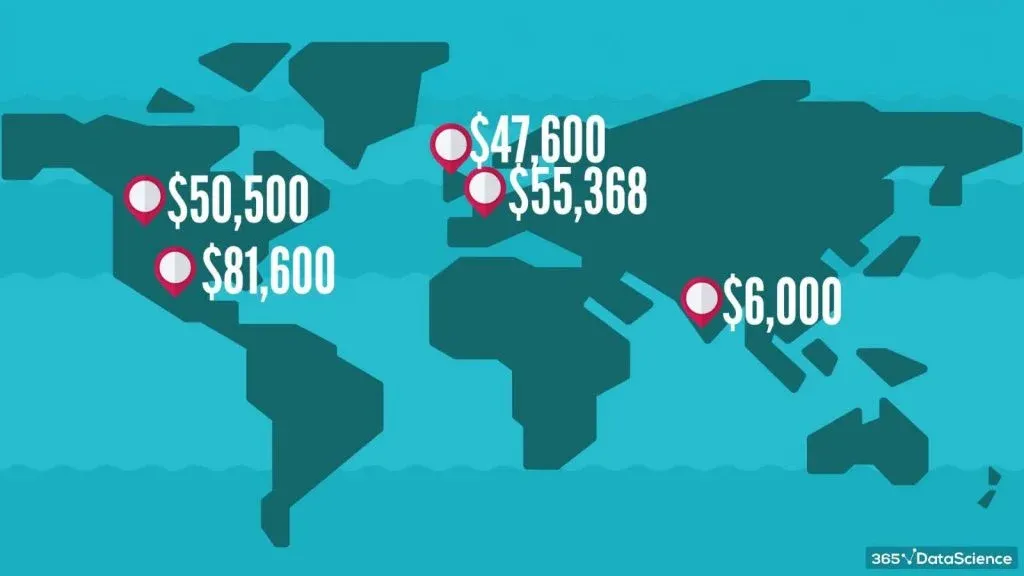
We hope this article shed light on what an SQL developer does and how you can become one.
If you’re eager to sharpen your SQL skills, check out our super practical SQL tutorials, such as SQL Joins, Where to Use Where or Having Clause, and plenty more.
Ready to take the next step towards a data science career?
Check out the complete Data Science Program today. Start with the fundamentals with our Statistics, Maths, and Excel courses. Build up a step-by-step experience with SQL, Python, R, Tableau, and Power BI. And upgrade your skillset with Machine Learning; Deep Learning; Credit Risk Modeling; Time Series Analysis; and Customer Analytics in Python.
If you want to explore the curriculum or sign up 12 hours of beginner to advanced video content for free, click on the button below.


